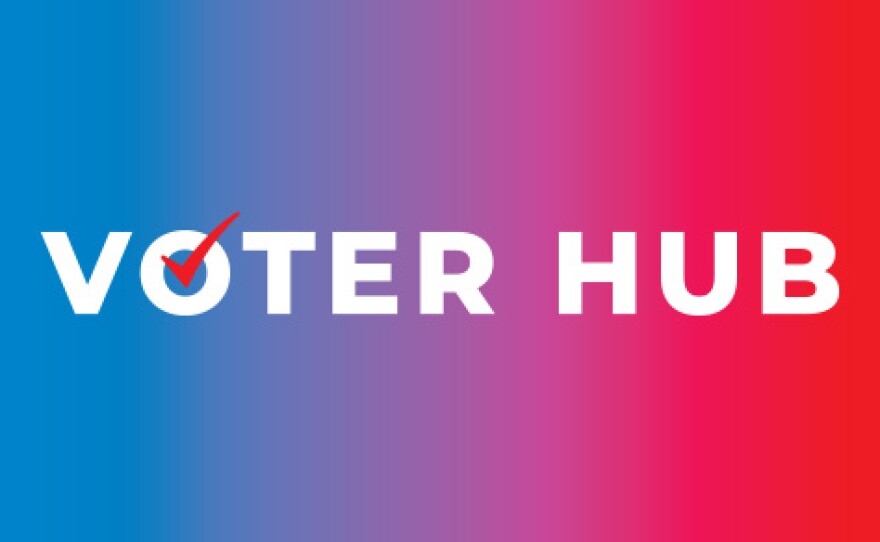Live election results
One of the most competitive races in San Diego's June 7 primary election is the race for City Council District 2, where incumbent Jen Campbell is facing five challengers hoping to unseat her.
The district, which includes Clairemont, Mission Beach and Point Loma, is at the center of several hot debates in city politics, including the redevelopment of the city-owned Sports Arena property and the regulation of short-term home rentals popularized by Airbnb.
Campbell touts the city's forthcoming regulatory system for short-term rentals as one of her proudest accomplishments on the council. The issue had been at a stalemate for years, with hard-liners on both sides.
Campbell said she brokered the compromise, which was codified into city law on Tuesday.
"We will close the chapter on the unregulated market that has vexed our city, our residents and the good faith hosts who wanted a clear set of guidelines to follow," Campbell said.
The rules limit the number of full-time vacation rentals to 1% of the city's housing stock, which Campbell said "will allow thousands of homes to come back onto our housing market and bring stability and normalcy and peace and quiet to our neighborhoods."
But, while Campbell is proud of the ordinance, her opponents in the race see it as a betrayal of her constituents, many of whom wanted stricter rules.
Among those opponents is Mandy Havlik, an activist and member of the volunteer Peninsula Community Planning Board, which advises the city on land use matters. Havlik has been a skeptic of growth and denser housing in the district.
"I'm just tired of not having responsive government or transparent government," Havlik said. "A lot of my background is in customer service, and I feel like that's something that's missing in the office."
KPBS spoke with Havlik and three other candidates at a Wednesday night debate, which Campbell said she couldn't attend because of a scheduling conflict.
Also in attendance was Joel Day, a UCSD lecturer and former staff member for ex-Mayor Kevin Faulconer, whom he advised on the city's COVID-19 response. He has been endorsed by a handful of unions, Democratic clubs and community activists.
Day bills himself as the most detail-oriented candidate, with a short-, medium- and long-term plan to tackle his top priority: homelessness.
"We need safe encampment sites so that people get into the continuum of care and off of stoops and off of the streets," Day said. "We need block leasing or master leasing so that the city can directly put people into units without security deposits, without credit checks, which are huge barriers to entry to rapidly rehouse people. And then, finally, we need to build deeply affordable units."
Linda Lukacs is a dentist, professor of dental hygiene and a realtor. She's been endorsed by Faulconer, former District 2 Councilmember Lorie Zapf and the conservative Lincoln Club. Among her top priorities is fixing San Diego's crumbling infrastructure — though she said she doesn't want to pay for those repairs with higher taxes.
"A lot of us are being taxed out of the state," Lukacs said. "I don't know how much more of a burden we can handle. So my goal is to look for alternative funding measures, seek the maximum we can from the state and from our federal governments, and, only if we've exhausted all other resources, then we can talk about raising taxes."
Lori Saldaña is a former state assembly member and retired community college professor. She said she was the most experienced candidate and the only one, besides the incumbent, who has represented the district's residents in elected office.
Saldaña ran unsuccessfully for Congress in 2012, mayor in 2016 and county supervisor in 2018. She said her record in the legislature shows that she was ahead of the curve in supporting progressive issues such as same-sex marriage and the ban on the open carrying of firearms.
"I think, as the state changed, I really pushed, pushed, pushed on those issues — if not for me to get them through with my name on them, for others in future sessions to get them through," Saldaña said.
San Diego voters have historically favored incumbents, though more recent elections have broken that trend. Campbell herself unseated Zapf in 2018, riding the "blue wave" backlash against Republicans. She has a major advantage in terms of fundraising and endorsements from elected officials, and she successfully quashed a recall attempt last year.
Notably absent from the list of her endorsements is the San Diego County Democratic Party, which rarely denies support to incumbent Democrats.
The two candidates with the most votes in the primary will compete in a runoff on Nov. 8.
-
Two new and highly contagious COVID-19 variants have been detected in San Diego. This comes as more than 1,500 new COVID-19 cases were reported in the county Wednesday – the highest one-day number reported since February. And, one of the most competitive races in San Diego's June 7 primary election is the race for City Council District 2. Incumbent Jen Campbell faces five challengers. Finally, San Diego’s parks will come alive with public art this weekend. The civic initiative Park Social grew out of a desire to offer local artists financial support during uncertain times. We have details on some of the projects that will be on display.
-
The race for San Diego’s City Council District 2 seat will be one of the most competitive local races in the June primary. Meanwhile, results are in from San Diego’s most recent point in time homeless count. Plus, the Carlsbad 5000 race returns to San Diego this weekend.








